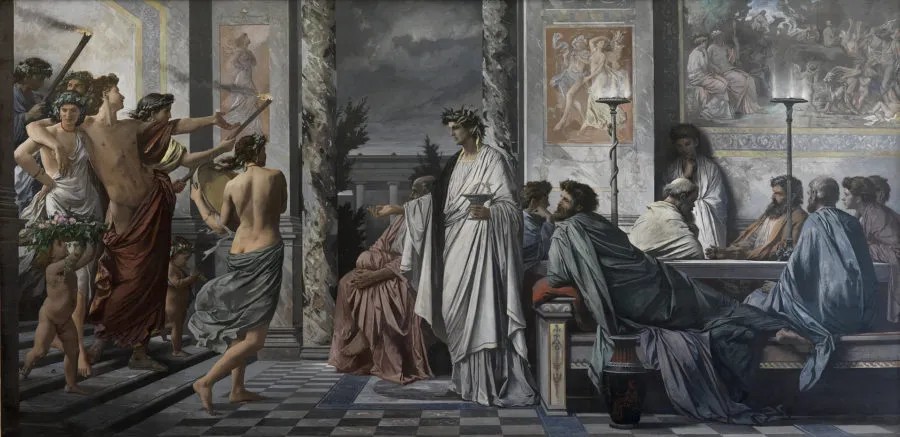
If you think Philosophy is boring, prepare to hear about a book that weaves it into a plot containing a love triangle involving a seductive old man, a gorgeous young one, and his jealous rival; amazing myths about androgynous people; and philosophers with hangovers discussing the nature of love and beauty. And no, this is not a modern revamp of some classical book, nor an erotic top-selling Amazon book. The author of this work is none other than Plato.
I suppose most people know Plato. His work is so classical that it is unlikely not to recognize possible references from some of his books: the lost city of Atlantis; the Ring of Gyges, which makes its wearer invisible (sorry, Tolkien); and, of course, the Allegory of the Cave (the one you need to choose the red pill to get out of). On the other hand, not everyone knows that Plato's Philosophy books are dialogues and are also considered literary pieces to some degree. I wouldn't be honest if I said that Plato's book is super catchy and entertaining. Philosophy books are not the Matrix franchise, but it doesn't mean they are not pleasant. Rather, I felt pretty amazing to get into an ancient mind and find that a dialogue between distant eras is possible (also weird, to be honest, especially in the Phaedrus' speech).
However, I should say that the Portuguese translation I read was packed with flowery words that I had never heard before. Perhaps different translation choices could help make the reading more fluid. Nevertheless, I'm happy I was able to overcome the obstacles and climb the mountain. And dude, what a great view!
Socrates: Ah, my dear Phaedrus, that is where the error lies. You see, love is not one thing but a name for many different things. For instance, we might say that someone loves money, or power, or fame, or pleasure. But that is not true love, it is only a passing passion. True love is something higher, nobler, and more lasting. It is the love of good and beautiful things in themselves, not for the pleasure they give us. It is the love of virtue, of wisdom, of justice, of honor. It is that love which makes us better, which raises us above ourselves, which makes us achieve immortality.